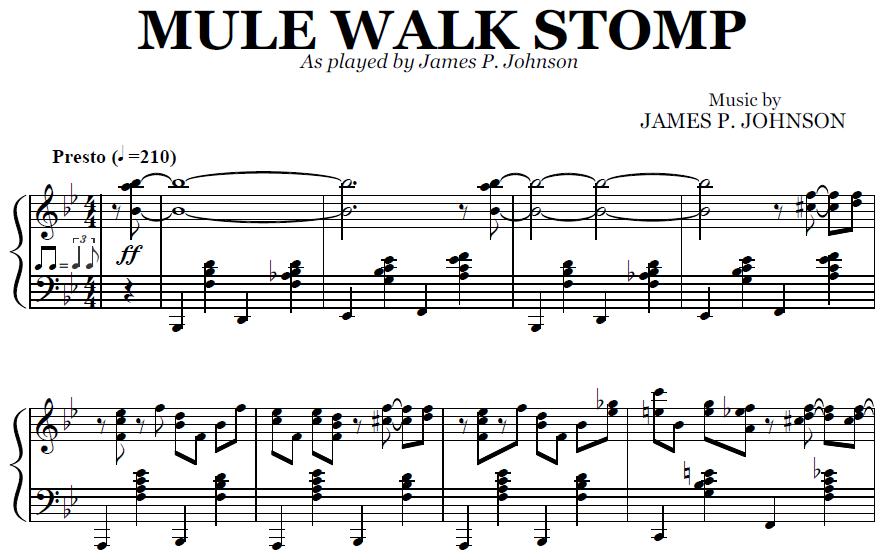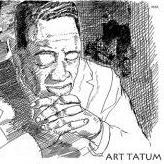-
Posts
12,234 -
Joined
-
Last visited
Content Type
Profiles
Forums
Events
Blogs
Everything posted by EKE BBB
-
CAB CALLOWAY
-
LAKA DAISICAL
-
Back in business! A few photos from the last artists patricia has "biographed" SHAKE KEANE
-
Alexander: Sent you a PM
-
First of all, thanks Jim for a wonderful compilation of music. Very cohesive and coherent, IMHO. I received it on Saturday morning and, through the weekend, it has helped me forget the last events that took place in Madrid. My comments (haven´t read the previous posts, but have checked my shelves and made some AMG research) on Disc 1: 1.- The song is Eric Dolphy´s “Iron man”, but that bass clarinet isn´t Dolphy: though I have only one version of that song by Dolphy –in the Illinois concert- and I know he did a few more, I´m afraid it´s not Dolphy. The context doesn´t fit (another clarinet, the rhythm section…). No idea who could be. Not my usual kinda stuff, but I did like it! 2.- My guess: http://www.allmusic.com/cg/amg.dll?p=amg&u...zeflk7gf6#TRACK (track 1) 3.- No idea of that organ player. I´m not much into the B3 thing! BTW: I like that drumming. 4.- Hey, un paisano!!! http://www.dustygroove.com/prip/5/9/78095i.htm Jim may have taken it from: http://www.dustygroove.com/cgi-sys/cgiwrap...9s&issearch=yes (disc 14) or http://www.allmusic.com/cg/amg.dll?p=amg&u...l=Arhuj6j4171y0 (track 10) or http://www.allmusic.com/cg/amg.dll?p=amg&u...l=A5ho7gjyr36ix (track 4) BTW: I don´t like it at all 5.- WTH is this? That oriental flavour reminds me of… nothing. No clue. 6.- Looks at a drummer date. Very strong drumming. Good soprano blowing. 7.- Superb live track! Who´s that tenor? Yuseef Lateef maybe? I don´t know. And no clue about the trumpetist. 8.- Good theme, one of my favorites in this BFT! Don´t know who this alto sax could be. The short melodic line is catchy, for sure! 9.- No clue on the vibraphonist. Hutcherson? Ayers? And I can´t recognize the pianist… how could I? 10.- Funny (and funky) groove! Invitation to dance. No clue, again! 11.- The song is “Nature boy” (Eden Ahbez). Guess I know that voice, but can´t bring a name!!! At first I thought it was Abbey Lincoln, but after comparing this track with some Abbey CDs on my collection, I conclude this couldn´t be her (though she included a version of this song in her 1994 Verve album “A turtle´s dream”). 12.- The piano player is very recognizable (even for somebody with closed ears like me). This is: http://www.allmusic.com/cg/amg.dll?p=amg&u...l=A9peb975jkrht (track 5) Not a favorite among my discs by that pianist (I prefer him in smaller ensembles) I´ll give the Bonus disc a listen and report on it. Thanks again, Jim!
-
Sorry, no photos today, how could I? Still trying to recover from the shock. My feelings balance from huge wrath to desperation, from great anger to infinite sadness... Everything´s OK with me and my family. I have been checking the political forums for the first time and I want to publicly thank all the people who has been interested and given their condolences. I have been in touch via PM and e-mail with some members. Again, thanks!. The only consolation is my family. Watching Walt Disney´s "The Jungle Book" with my two years old child and seeing him laughing at Baloo´s singing and dancing brought the only hint of a smile to my face yesterday. I will be lurking the site when I have the strength to, but won´t be posting for a while. THANKS
-
Their Satanic Majesties
-
Just ordered the Tristano/Konitz/Marsh and the New Orleans sessions Mosaics. Now they´re nearer to be in the "Last chance" list...
-
RED NICHOLS Again, showing our artist a young man...
-
SISTER ROSETTA THARPE
-
Thanks for all that information, Mike!
-
Happy birthday! (one day late)
-
4 to go Devilish number´s coming!
-
Listening to her wonderful version of Ellington´s "It don´t mean a thing", included in the compilation of her Muse years "From the heart" (on 32 Jazz), with only bass and vocals, I realized that I tend to prefer her pianoless recordings. Maybe it´s the peculiarity of her voice, that doesn´t fit well with the classic piano-trio-plus-vocals format. Check !!!! Notwithstanding, and contradicting my previous assertion, I LOVE her work with Steve Kuhn..
-
DODO MARMAROSA
-
PEE WEE RUSSELL (a very young Pee Wee, not the kind of picture you use to see everywhere)
-
KID RENA
-
ED GARLAND
-
Curiously, I´ve been listening to George Coleman´s "My horns of plenty" today. It´s a great date, IMHO.
-
MEADE LUX LEWIS
-
I sometimes use it, especially when I´m not in a proper CD listening (i.e. while working) or when I know I will not have time to listen to it entirely (that´s the only way to not listening the first few tracks again and again). But when I´m in the mood for an appropiate, analytic, calm and joyful listening... I listen to the entire CD as it comes...
-
Mike, I saw these Ocium discs in some store here. They look alright, compared to other european rip-off labels. Are they complete? Do they have all takes (I did not look that close, obviously...)? ... The Ocium volumes I have so far (Buck Clayton´s "Back to Buck" , Coleman Hawkins´s Hollywood sessions...) are very good: rare to find sessions in good sound, though sometimes from different eras. I don´t know if they include COMPLETE sessions (with alternates) in any of their releases, but I guess they don´t. Basie´s NT in the 50s (Clef/Verve) on Ocium: BASIE TALKS Count Basie big band OCIUM #28 [1952] Track listing New Basie Blues Sure Thing Why Not? Fancy Meeting You Jive At Five No Name Redhead Every Tub Jack And Jill Bread There's A Small Hotel Hob Nail Boogie Basie Talks Paradise Squat (Take 2) Paradise Squat (Take 4) U.F.O. Like A Ship At Sea Bunny Tippin' On The Q.T. Blee Blop Blues Cash Box Bootsie Tom Whaley BE MY GUEST Count Basie Sextet, Nonet and Big Band OCIUM #37 [1952] Track listing: Blues For The Count & Oscar Be My Guest You're Not The Kind Extended Blues Let Me Dream Sent For You Yesterday Goin' To Chicago I Want A Little Girl Lady Be Good Song Of The Islands Basie Beat She's Funny That Way Count's Organ Blues K.C. Organ Blues Blue & Sentimental Stan Shorthair As Long As I Live Royal Garden Blues Mike (or anybody else): do you know if Ocium has planned to release more volumes? Well, for now they should stop on 1953 (or early 1954) due to copyright laws, shouldn´t they?
-
Thanks, ubu. Following your recommendations, I will give Chick Corea another chance.
-
Not a fan of Chick Corea here. Saw him live with Origin, some years ago (Auditorio de Madrid, by the end of the 90´s, I guess) and was very impressed by the overall sound of the group and by his playing. I remember it as a very good concert. Oh, but I was so much older then, I´m younger than that now Through the years I´ve picked a bunch of his albums, here and there, and I must recognize that I haven´t been impressed at all... not my kind of stuff... though the guy has been involved in many musical developments. The only disc I really dig is "Now he sings, now he sobs", a great trio date. And from your comments, I´m sure I would like "Tones for Joan´s bones - Inner Space" (I don´t have this one). But a classic such as RTF´s "Light as a feather" is so.... boring to me!!! That´s one of those classics you (I) can never get into! And what to say about "Friends" or "My Spanish heart"... I can´t stand those two discs. They rarely, very rarely, are pulled off my shelves. Maybe I should explore him a bit more...
-
Two for the price of one... GENE AND COZY ...and being a drummer, and only for your eyes , one more:
_forumlogo.png.a607ef20a6e0c299ab2aa6443aa1f32e.png)

